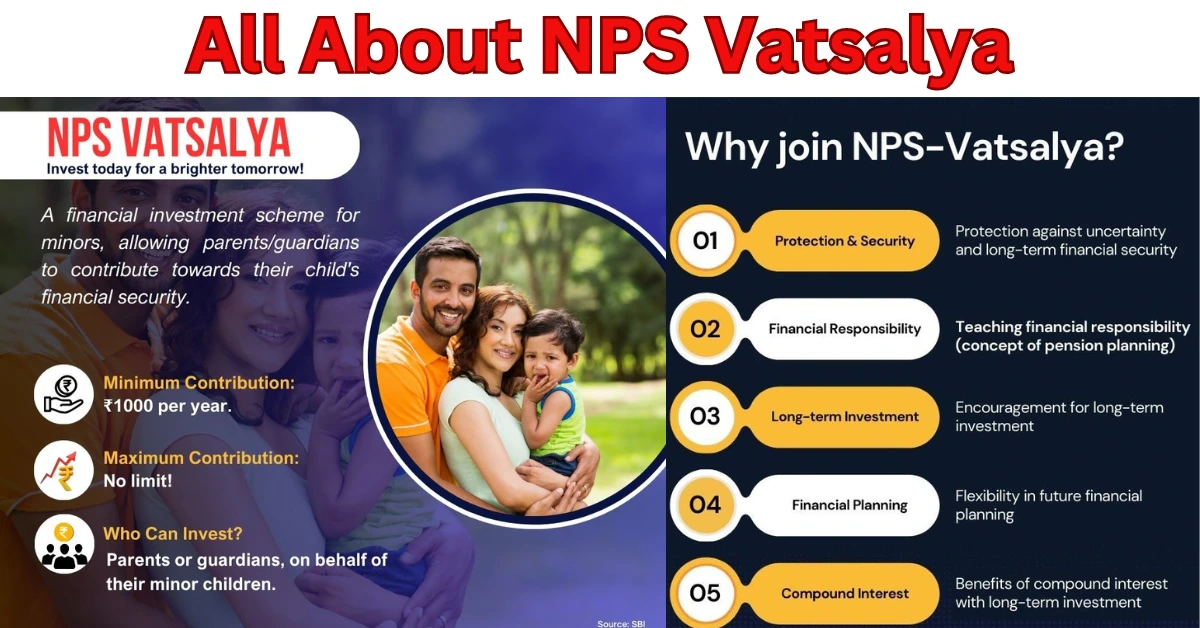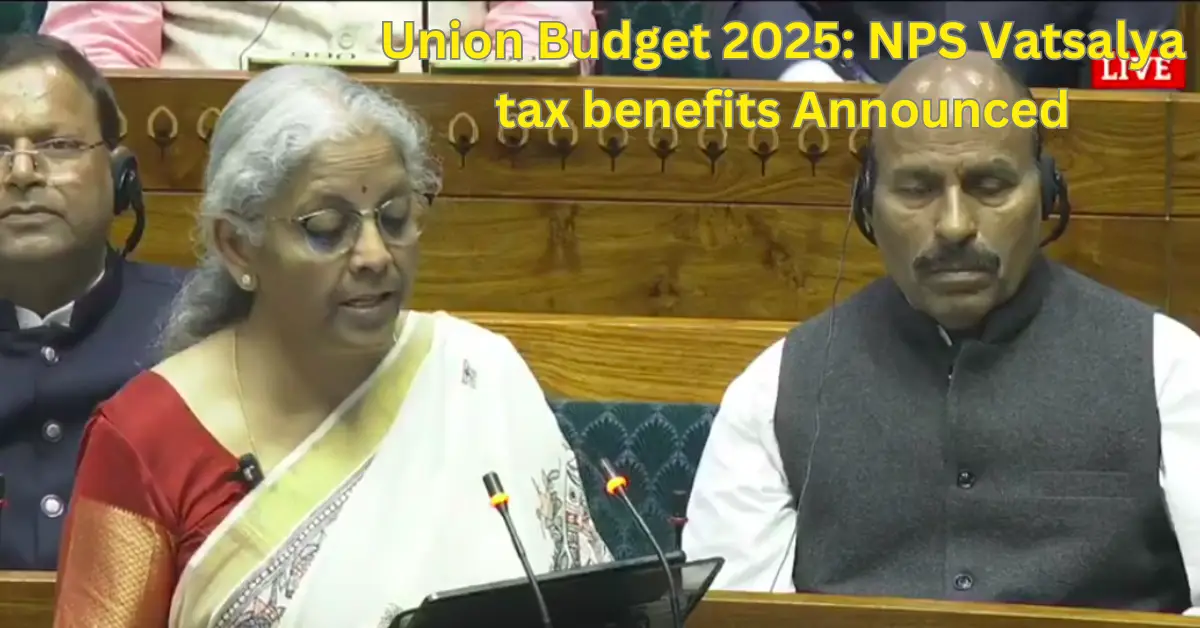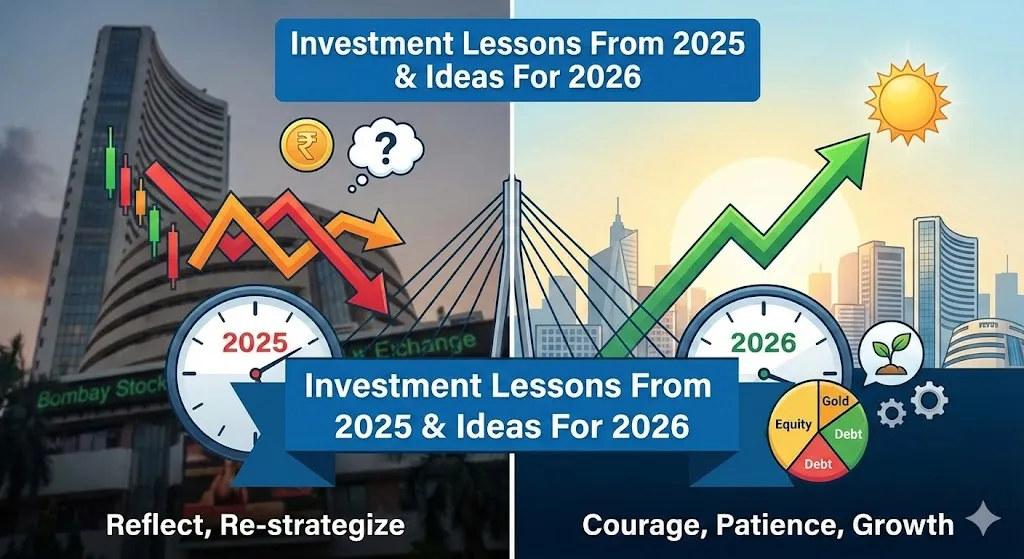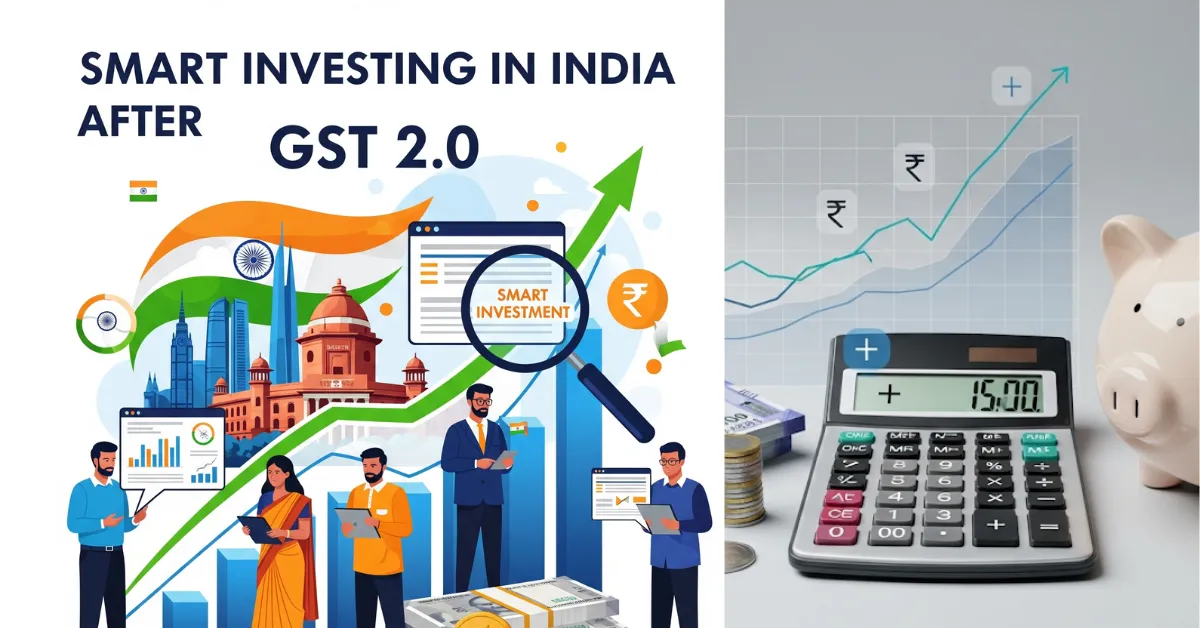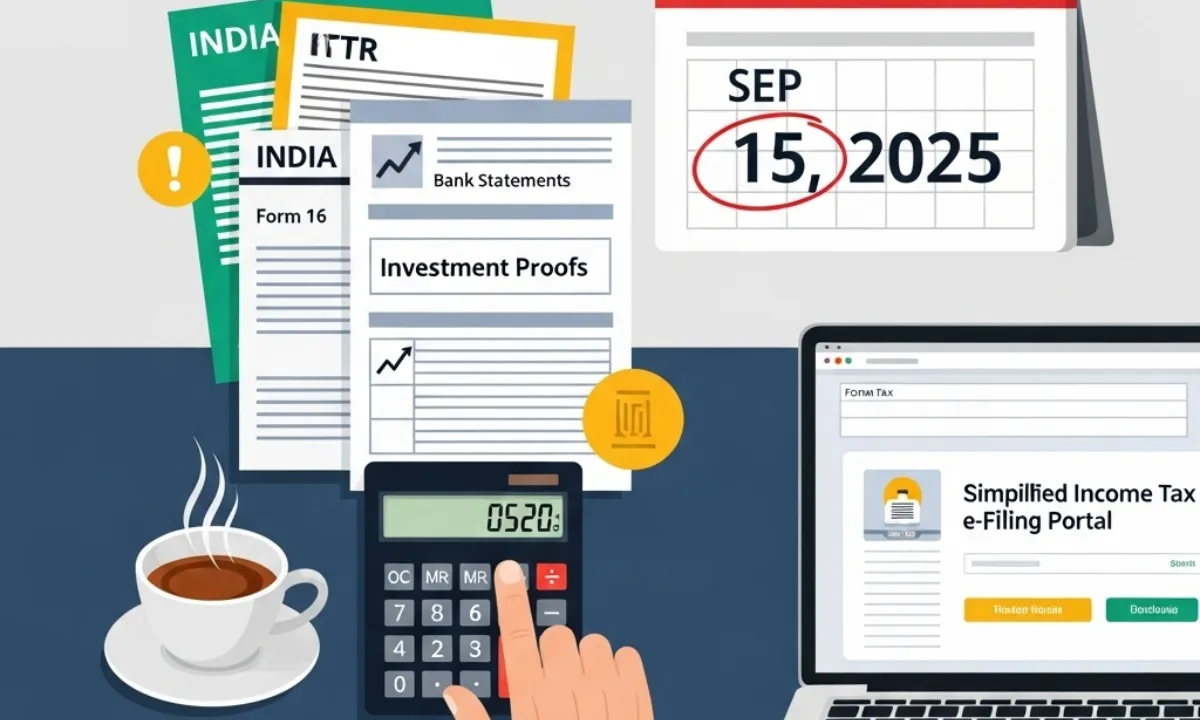In an increasingly unpredictable financial landscape, planning for your child’s future has never been more essential. One of the most promising long-term savings options available in India today is the NPS Vatsalya Scheme, launched by the Indian government to help parents secure their child’s future. If you’re looking to provide financial security for your child, ensuring they have the necessary funds for their retirement, NPS Vatsalya may be the solution you’ve been seeking.
What is NPS Vatsalya?
NPS Vatsalya is a pension scheme tailored specifically for minors, allowing parents or guardians to open an account for their child. The scheme follows the model of the National Pension System (NPS), one of India’s most popular retirement-saving plans. NPS Vatsalya aims to help parents start a disciplined, long-term investment strategy to secure a financial cushion for their children by the time they reach retirement age.
Try This: NPS Vatsalya Calculator
Unlike many other savings schemes, NPS Vatsalya ensures that the funds are locked until the child turns 60, promoting long-term saving. Once the child turns 18, the account converts into a regular NPS account, giving the individual more control over their investments.
Why Should You Consider NPS Vatsalya?
As a parent, you naturally want the best for your child, including their financial security. Here are several compelling reasons why NPS Vatsalya stands out as an investment option:
- Long-term security: NPS Vatsalya is designed to ensure your child will have sufficient funds to support themselves in retirement.
- Equity advantage: Up to 75% of the contributions can be allocated to equity, providing the opportunity for higher returns over time, compared to traditional savings schemes.
- Flexibility: At age 18, the account transitions into a regular NPS account, giving your child full control over their investments.
- Protection from premature spending: Since the funds are locked until age 60, you can rest assured that your child won’t be able to access the money prematurely, helping them cultivate good financial habits.
These features make NPS Vatsalya a robust option for those looking to safeguard their child’s financial future in a structured and disciplined way.
Key Features of NPS Vatsalya
- Eligibility:
- Open to Indian citizens, including NRIs and OCIs (Overseas Citizens of India).
- Parents or guardians can open an account for any minor under the age of 18.
- Investment Options:
- Active Choice: Customize your investment mix between equity, corporate bonds, and government securities.
- Auto Choice: Choose from three life-cycle funds based on risk tolerance:
- LC-75 (Aggressive): Ideal for those willing to take higher risks for potentially higher returns.
- LC-50 (Moderate): A balanced approach between risk and stability.
- LC-25 (Conservative): Suitable for conservative investors looking for stable, long-term returns.
- Tax Benefits:
- While there is no clear tax deduction for NPS Vatsalya contributions yet, you can still benefit from tax-free returns on up to 60% of the maturity amount.
- Withdrawal Flexibility:
- Partial withdrawals are allowed for specific purposes, such as education or medical treatment, before the child turns 18. After 18, the account operates like a regular NPS account, providing more flexibility.
- Minimum and Maximum Contributions:
- Minimum annual contribution is ₹1,000, and there is no upper limit. This makes the scheme accessible to a wide range of investors, regardless of income level.
How Does NPS Vatsalya Compare to Mutual Funds?
Many parents may wonder how NPS Vatsalya stacks up against more traditional investment vehicles, like mutual funds. While mutual funds may offer higher short-term returns, they also come with more volatility and lack the long-term lock-in that NPS Vatsalya provides.
Try This: SSY CALCULATOR
Here’s a comparison:
| Feature | NPS Vatsalya | Mutual Funds |
|---|---|---|
| Lock-in period | Until age 60 | None |
| Partial withdrawals | Allowed for education and medical expenses before 18 | No restrictions |
| Equity exposure | Up to 75% | 100% |
| Risk | Lower due to government securities and corporate bonds | Higher due to full exposure to the stock market |
| Taxation | 60% tax-free at maturity | 12.5% capital gains tax after 1 year |
Opening an NPS Vatsalya Account: Step-by-Step Guide
Opening an NPS Vatsalya account is a straightforward process. Here’s how to get started:
- Visit the eNPS website: Go to eNPS.nsdl.com and select the “NPS Vatsalya (Minors) Registration” option.
- Fill in the necessary details: Complete the form with the minor’s and guardian’s information.
- Upload required documents: Ensure you have the minor’s birth certificate, your signature, and proof of address. For NRIs or OCIs, additional documentation such as a scanned copy of the passport and bank proof is required.
- Submit the application: Once all details are filled in, you can submit the application online and start contributing immediately.

The Long-Term Benefits of NPS Vatsalya
One of the greatest advantages of NPS Vatsalya is the power of compound growth. With consistent contributions and a potential return rate of 10%-12%, your child’s corpus can grow substantially by the time they turn 60.
Read More: NPS VATSALYA LAUNCHED: Your Child’s Financial Future Starts Today
For example, an annual contribution of ₹10,000 over 18 years could result in a corpus of ₹5 lakh by the time your child turns 18. If the contributions continue until age 60, this amount could grow to ₹11 crore, assuming a 12% return rate. These numbers demonstrate the immense potential of NPS Vatsalya as a long-term investment vehicle.
Long-term Financial Stability
NPS Vatsalya is a reliable and secure investment option for parents looking to provide their children with long-term financial stability. With its mix of equity and debt, flexibility, and the potential for compound growth, NPS Vatsalya offers a unique solution to ensure your child’s future is financially secure.
Start planning today to give your child the gift of financial freedom tomorrow.
FAQs: All About NPS Vatsalya
What is NPS Vatsalya?
- NPS Vatsalya is a unique pension scheme launched in India, specifically designed for minors. It helps parents or guardians secure their child’s financial future by investing in a long-term pension plan. The scheme allows contributions to accumulate until the child turns 60, with flexible withdrawal options after the age of 18.
Who can open an NPS Vatsalya account?
- Parents or guardians of minors (below 18 years of age) can open an NPS Vatsalya account. It is open to Indian citizens, NRIs (Non-Resident Indians), and OCIs (Overseas Citizens of India).
What is the minimum and maximum contribution to NPS Vatsalya?
- The minimum annual contribution is ₹1,000. There is no upper limit for contributions.
How does NPS Vatsalya differ from Mutual Funds?
- NPS Vatsalya has a lock-in period until the child reaches 60 years of age, providing long-term financial security. Mutual Funds, on the other hand, allow greater liquidity, making them more suitable for short-term goals like a child’s college education.
What are the tax benefits of NPS Vatsalya?
- Contributions to NPS Vatsalya are eligible for tax deductions under Section 80C of the Income Tax Act, 1961. However, tax rules may change, so it’s recommended to check for any updates.
Can partial withdrawals be made before the child turns 60?
- Yes, partial withdrawals are allowed for specific purposes such as higher education or medical emergencies after the child turns 18. However, there are certain conditions and limits on withdrawals.
What happens to the account if the guardian passes away?
- In case of the guardian’s death, a new guardian can be appointed. If both parents or guardians pass away, a legal guardian can maintain the account without further contributions until the child turns 18.
How can I open an NPS Vatsalya account?
- You can open an NPS Vatsalya account by visiting the official eNPS portal (eNPS.nsdl.com) or through participating banks. Follow the registration process, fill out the required details, and submit the necessary documents.
What documents are needed to open an NPS Vatsalya account?
- You will need the minor’s Date of Birth proof, the guardian’s signature, and in the case of NRI or OCI applicants, a scanned copy of the passport, foreign address proof, and bank proof.
What are the investment options under NPS Vatsalya?
- NPS Vatsalya offers three investment options:
- Active Choice: You select your asset allocation.
- Auto Choice LC-75: Aggressive approach with 75% equity allocation.
- Auto Choice LC-50 or LC-25: Moderate and conservative approaches with 50% and 25% equity allocations respectively.
Can NRIs or OCIs invest in NPS Vatsalya?
- Yes, both NRIs and OCIs can open an NPS Vatsalya account for their children. The scheme offers the same benefits to them as to Indian residents.
Is there a lock-in period for NPS Vatsalya?
- Yes, the NPS Vatsalya account remains locked-in until the child turns 60, although withdrawals can be made for specific needs after 18.
How are returns calculated in NPS Vatsalya?
- Returns are based on market performance, with equity, corporate debt, and government securities as the primary investment options. Historically, NPS has delivered returns of around 10% to 12% over the long term.
Can the NPS Vatsalya account be continued after the child turns 18?
- Yes, after turning 18, the NPS Vatsalya account can either be continued as a regular NPS account or withdrawn, depending on the subscriber’s preferences.
What happens in the unfortunate event of the child’s death?
- In such a situation, the accumulated corpus is transferred to the guardian or legal heir of the child.
